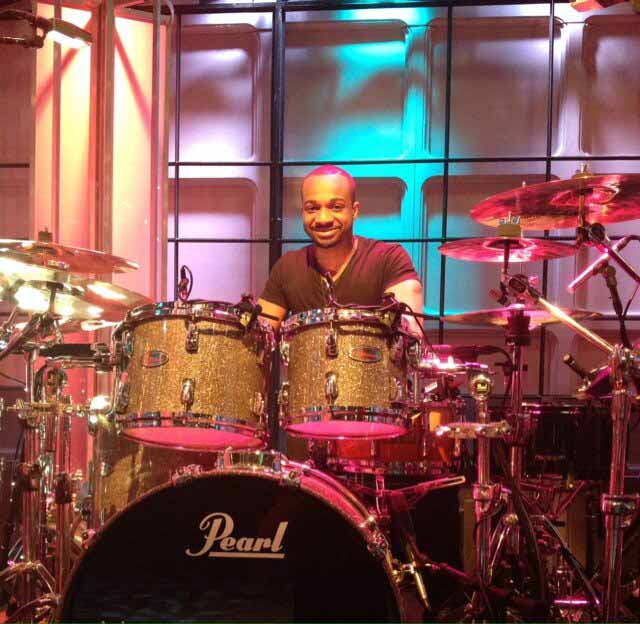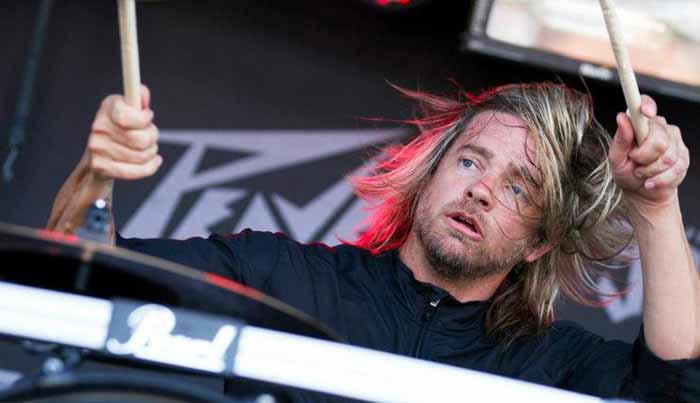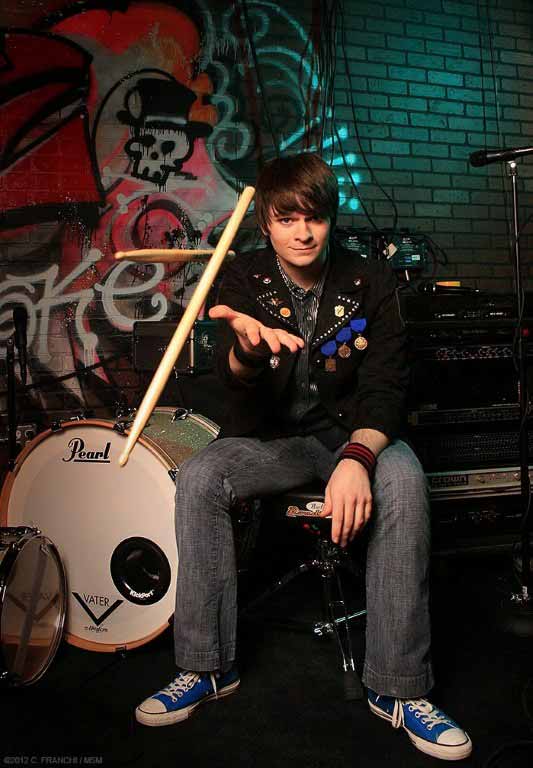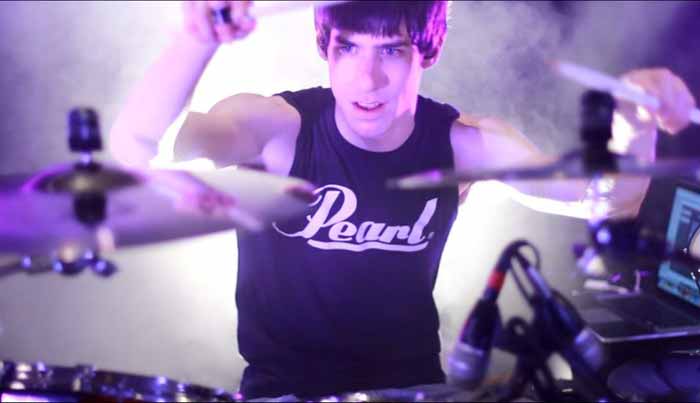June 16, 2015
Music & Arts Interview with Jeff Coffin
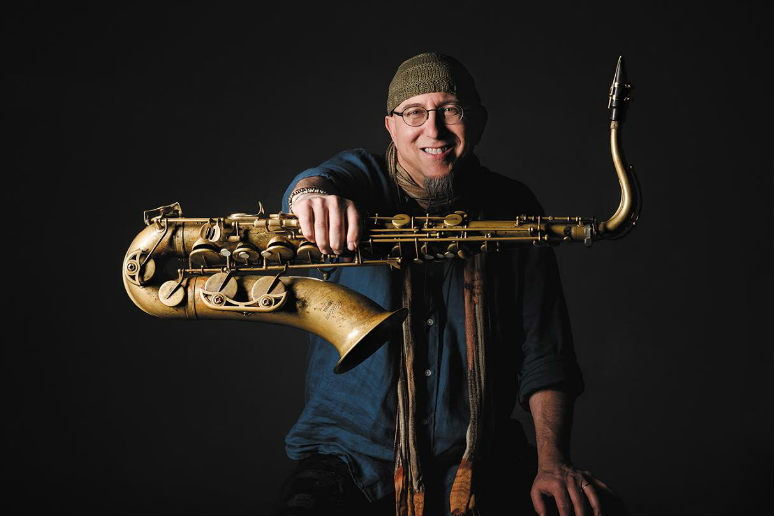

3x Grammy award-winning artist and saxophonist for the Dave Matthews Band, Jeff Coffin, sat down with Senior Marketing Manager, Skip Wilson, to talk about Jeff’s start in music, instrument upgrades, and his relationship with D’Addario. He also gave us his advice on what it takes to become a better musician.
Jeff, tell us a little bit about who you are and what you do.
How did you get started in music?
Who would you say were your biggest musical supporters?
Probably my original director, Mr. Lagassee; he really fanned the flames. I think great directors can make all the difference in the world, which is one of the reasons why I do a lot of education. I want to share some of those experiences…that inspiration that I felt when I was starting out. Of course, my family was supportive to a point. I’m not sure if at first they were so keen about me wanting to become a musician. A lot of people say, “oh, get a real job,” but, as we know, this is a real job.
How did you stay motivated to practice?
What motivated me to practice was knowing it would make me better; it was hearing other musicians playing at an extraordinary high level because they stayed dedicated. I knew I didn’t have my fundamentals together so I was putting in 8-12 hours of practice a day plus taking classes. I was trying to hang out with my friends as much as I could, but even that was limited because the amount of time I had to spend doing what I was there to do was extraordinary. So that’s why I am always preaching the fundamentals. Start them early so you have time to actually have a life along the way rather than trying to make up for not having done certain things that are essential to your development as a player.
We meet a lot of parents who are trying to nurture their kids’ early music careers. What are some ways they can invest in their musical journey?
I think having private instruction is important. Still to this day, I study privately on flute. It’s just one of those never-ending things, but I think in particular, it’s important to establish a one-on-one development with students so there is pin-point focus going on to engage a student. Overall, I think what a lot of young musicians need from their parents is encouragement; they need to know they are being supported in what they are doing. When you have parents coming out to concerts, for example, I can’t tell you what it means to these students. The first thing the student is going to do when they are done is find their parents and they are going to be bright-eyed, excited, and inspired. I get goosebumps thinking about it.
Who would you say are some of your heroes in music?
I have to say first and foremost, Miles Davis. Miles changed the way music was presented and played three or four times in his career, which is quite monumental. People like Ornette Coleman, John Coltrane, Sonny Rollins, Charlie Parker, Louis Armstrong, of course, and Bob Dylan. To me, it’s really about the revolution of music. The people that I really love musically, have their own sounds. It’s the people that give us the permission (that we don’t really need) to play how we feel that I gravitate towards.
You’ve played all over the world with some of the finest musicians. What sets some of those legendary artists that you just mentioned apart from the rest?
I think what sets certain musicians apart from others is their vision of what they are trying to do. If you’re going to be a professional musician, being able to play at a very high level is a given. You’re playing will get you hired the first time, but after that, it’s all the things you do or don’t do that will continue to create jobs or no jobs. The way someone uniquely plays develops an identifiable sound. And, again, it’s this revolution of music where you’re trying to forge a path. I think it’s really important and I think it comes down to vision, really.
What advice would you give to students or aspiring students who may or may not be entering collegiate or professional-level music?
I think throughout your life, you’ll find whatever you do whether it is music, mathematics, gardening, construction, whatever it is, you’re going to do it all at the same level. We all have a standard that we do things at and the development of a young player is doing the best you can do. It doesn’t mean you have to be a professional musician, but learn for the sake of learning and always be curious.
Are there benefits to upgrading an instrument?
Absolutely! Upgrading your gear is essential as you continue to become a better player. My biggest piece of advice is don’t play a certain brand of instrument because your favorite musician plays it; play it because it inspires you to play. I think upgrading your gear at a place like Music & Arts is great because there is a wide selection of stuff and you can try out a lot of different types of instruments and accessories. The more variety, the better so you’re not like, “oh I have to choose from just these two mouthpieces or these two brands of horns.” It’s really kind of a big experiment. I don’t recommend changing everything at once, however. If you’re changing a mouthpiece, and reeds and then you get a brand new horn, that might be a little much at first. My suggestions is to go in increments and experience the difference each piece makes.
What are some things to avoid when looking for a new instrument?
There are certain things to avoid when looking for a new instrument. I think you have to remember you really are going to get what you pay for. I think one thing to look out for is “feel of an instrument” like whether things feel solid or not. If it feels chintzy chances are it’s going to play chintzy. I think when you go with a brand like D’Addario or Yamaha, that is a reputable brand, you’ll have a better playing experience. One of the things I love about Yamaha, for example, is they have amazing horns that are really well-priced. D’Addario is another great brand that makes great mouthpieces. You can spend a thousand dollars on a mouthpiece if you want, but I’ve got my students playing D’Addario because they make extraordinary stuff and they recognize people are trying to stretch their dollar. And with kids being involved in more than one extracurricular activity, the idea that, “I can only allocate this much towards music” can become a barrier to playing.
Jeff, you are a D’Addario artist, can you tell us a little bit about that partnership and how that came about?
I was approached by D’Addario a number of years back through some mutual friends. We got in contact with each other and had some great phone conversations about what I do educationally and what I do professionally. What really set-off our partnership was the people. To me, the people are first and foremost. I wanted to work with people who cared about the end-user, who had a concentration in music education, and who were supportive of me as an artist, and for me, that was D’Addario.
Jeff, you seem to do it all – you’re a performer, a teacher, a master of business, a philanthropist and an author. Could you tell me about an upcoming project that you’re most excited for?
I’m thrilled about a couple of books I am writing one of which is called, “The Saxophone Book.” I’ve been working on it for more than 15 years and it’s in 3 different; it should be out later this year. I am also doing a lot of recording these days. I just finished a record with Jeff Babko, a great keyboard player, with Will Lee on bass, Keith Carlock on drums and Nir Felder on guitar. A really fun project I’m working on is with a Chinese guzheng player named Wu Fei who is a virtuoso from Beijing. This project is very different from anything I’ve ever done before. I’m mainly playing flutes, whistles, a little bit of soprano; I’m trying to experiment with a lot of different things and it’s exciting to me.
Ok, final question. Jeff, why is music important?
I can’t possibly imagine my life without it; I can’t really imagine it not being in all of our lives. It has absolutely changed everything for my community of people, which I realized early on, are the people I want to be with. These are the people who are creating, who are reaching, who are searching, who are connecting, who are encouraging, who are advocating. I can’t imagine doing anything else quite honestly. Whether it’s playing, performing, composing, educating, it gives people so much. It’s healing, it’s inspiring, it bridges cultures, racial divides, financial divides – it’s like the universal language.
For more interesting artist interviews, click here.




